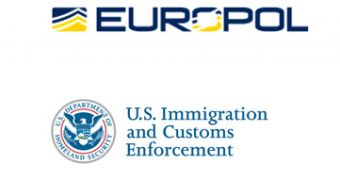A total of 132 domain names have been seized by the US Department of Homeland Security’s Immigration and Customs Enforcement (ICE), several law enforcement agencies from Europe through the European Police Office (Europol). The domains have been utilized to sell counterfeit merchandise.
The websites in question were specially set up to trick consumers into thinking that they were purchasing genuine products.
The seizures were part of two operations. Project Cyber Monday 3 targeted 101 sites and it also resulted in the arrest of one individual.
The second campaign, Project Transatlantic, resulted in the seizure of 31 domain names hosted on top level domains from Belgium, Denmark, Romania, France, and the United Kingdom.
Project Transatlantic is the result of a collaboration between the National Intellectual Property Rights Coordination Center (IPR Center) – governed by ICE’s Homeland Security Investigations (HIS) – and Europol.
The seized domain names are now in the custody of the governments involved in the law enforcement projects.
During their investigation, authorities also identified several PayPal accounts utilized by those who managed the fraud websites.
“We couldn't be more pleased with the opportunity to work closely with HSI to shut down criminals targeting our customers and our brand just as the holiday season takes off,” said Tod Cohen, vice president and deputy general counsel of government relations for eBay Inc.
“PayPal and eBay Inc. pride ourselves in going above and beyond in the fight against the illegal online trafficking of counterfeit goods by partnering with law enforcement and rights owners globally, and we hope that this is fair warning to criminals that the Internet is not a safe place to try and sell fake goods.”
Before raiding the domains, federal law enforcement officers had purchased a number of products – including clothing, jewelry and luxury items – from the online stores and asked the copyright holders to confirm that they truly were counterfeit goods.

 14 DAY TRIAL //
14 DAY TRIAL //